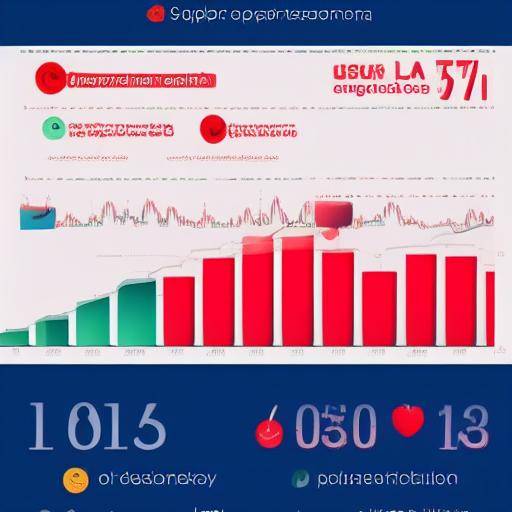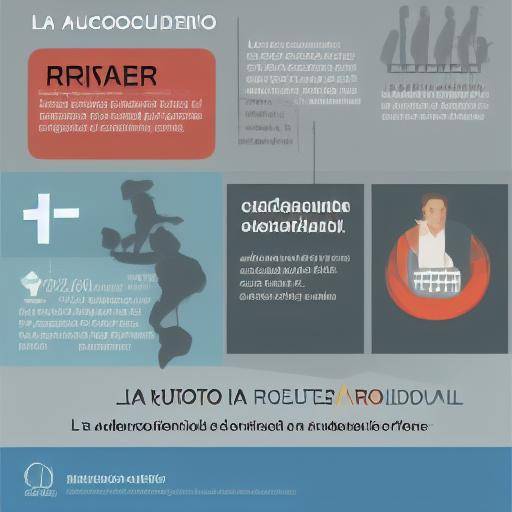
The concept of resilience has become a fundamental piece in the pursuit of emotional well-being in today's society. In parallel, volunteering has proven to be a powerful tool to develop personal resilience. What are the benefits of volunteering for resilience and emotional well-being? In this article, we will thoroughly explore how volunteering can strengthen resilience, provide emotional well-being and create a positive impact both individually and in society at large.
Introduction
In the pursuit of emotional well-being, it is essential to understand the concept of resilience. Resilience refers to the ability of people to adapt positively to adverse or difficult situations. It is the process of confronting adversity, overcoming and recovery, and can be strengthened over time through various strategies and experiences.
Volunteering, on the other hand, involves offering time, energy and skills altruistically to contribute to the well-being of others and the community at large. The combination of resilience and volunteerism can have a powerful impact, as helping others, volunteers can also strengthen their own resilience and emotional well-being.
History and Background
The concept of resilience has its roots in psychology and sociology, but its application has spread to various disciplines and areas of life. Since its beginnings in research on child development in the 1960s, resilience has evolved into a central theme in positive psychology and emotional well-being.
Volunteerism, for its part, has a long history ranging from community initiatives to international movements. From religious and charitable volunteerism in antiquity to modern non-governmental organizations, volunteerism has played a crucial role in community development and in promoting social welfare.
Analysis in Deep
Volunteering offers a variety of benefits for resilience and emotional well-being, both for aid recipients and for volunteers themselves. These benefits include a sense of personal purpose and gratification, meaningful social connections, improvement of self-esteem and a greater perspective on life.
However, volunteering can also present challenges, such as emotional exhaustion or difficulty in establishing personal limits. It is important to understand how to mitigate these challenges and foster a sustainable and healthy volunteer environment.
Comprehensive review
In thoroughly reviewing volunteer applications in the promotion of resilience and emotional well-being, there is a need to understand best practices, resilience management strategies and long-term impact. In addition, it is essential to assess how these practices can be adapted to different cultural and social contexts.
Comparative analysis
Compare resilience to volunteering and emotional well-being allows us to identify the intersection of these concepts and how they complement each other. While resilience focuses on individual recovery capacity, volunteerism promotes connection with others and the community. These aspects can work in synergy to promote individual and collective emotional well-being.
Practical Tips and Accessible Tips
For those interested in developing their resilience through volunteering, it is key to have practical tools and actionable tips to maximize benefits and mitigate challenges. These tips may include the importance of establishing personal limits, seeking volunteer opportunities that are aligned with personal interests and seeking support when necessary.
Industry Perspectives and Expert Reviews
Experts on psychology, emotional and volunteer well-being can offer valuable insights and ideas on the subject. Their views and knowledge can shed light on best practices, innovative approaches and emerging challenges in the field of volunteerism and resilience.
Case Studies and Practical Applications
Analyzing specific cases of volunteerism and resilience can provide a detailed view of how these two areas intertwine to promote emotional well-being. These case studies can come from community organizations, humanitarian aid programs or corporate volunteer projects, showing the diversity of volunteer applications to strengthen resilience.
Future Trends and Predictions
Given the constant change in the social, economic and technological scenario, it is crucial to examine future trends related to resilience, volunteerism and emotional well-being. Predictions on how these areas will evolve and integrate into society can provide a valuable vision for those seeking to engage in volunteerism or strengthen their own resilience.
Conclusions
In short, volunteering can provide significant opportunities to develop resilience and promote emotional well-being both individually and collectively. The combination of contributing to the community while strengthening its own resilience can generate a lasting positive impact. In seeking these opportunities and implementing appropriate strategies, it is possible to experience personal growth and contribute to the well-being of others.
Frequently asked questions
**1. How can volunteering strengthen resilience?**Volunteering provides an opportunity to face challenges, develop coping skills and strengthen self-efficacy, key elements for resilience.
**2. What types of volunteering can be more beneficial for emotional well-being?**Volunteers that allow a meaningful connection with the community offer learning opportunities and personal growth are often especially beneficial for emotional well-being.
**3. What is the relationship between volunteerism and self-esteem?**Participating in volunteering can increase self-esteem by providing a sense of purpose and the satisfaction of helping others.
**4. Can volunteering help overcome past adverse experiences?**Volunteering can be a way of transforming adverse experiences by finding meaning through service to others and strengthening emotional resilience.
**5. How can I find volunteer opportunities that align with my interests and abilities?**Exploring online platforms, local organizations and community groups can be an effective way to identify volunteer opportunities that suit your interests and skills.
**6. What measures can I take to avoid emotional exhaustion as a volunteer?**Establish clear limits, seek emotional support, and practice self-care are fundamental elements to avoid emotional exhaustion as a volunteer.
In conclusion, volunteering offers a powerful route to strengthen resilience and promote emotional well-being. By participating in voluntary activities in a conscious and reflective way, it is possible not only to provide a positive impact to the community, but also to develop the own capacity for emotional recovery.






















































